| |

|
DeLoG NEWSLETTER
No. 51 – 09/2020
|
|

|
| |
|
|
| |
Dear Reader,
welcome to issue No. 51 of the DeLoG Newsletter which showcases the Network’s and its Members and Partners most recent activities and offers an overview of current news stories, upcoming events and courses. Moreover, it provides access to a carefully curated selection of recent publications categorised along DeLoG’s core topics: - Decentralisation and Local Governance in Contexts of Fragility, Post-Conflict and Migration,
- Local Finance and Fiscal Decentralisation,
- Localising the 2030 Agenda and
- Urban and Territorial Governance.
In our “In-Profile” section, we introduce you to Björn Möller and Johan Lilja and their inspiring work at the Swedish International Centre for Local Democracy (ICLD). Aimed at fighting poverty through the promotion of local democracy development, ICLD supports municipal partnerships, training programmes and cross-cutting research based on the experience of Swedish municipalities and regions. In their interview, Björn and Johan provide an insight into ICLD’s current programmes and activities and share their perspective on democratic trends around the world as well as COVID-19’s impact on democratic development globally and the challenges and opportunities posed by the pandemic to networks like DeLoG.
The impact of COVID-19 on subnational governments was passionately discussed during DeLoG’s 15th Annual Meeting as well which took place – for the first time ever online – from the 7th to the 16th of July. Besides timely inputs on topics such as “Governance in Authoritarian Contexts” or “Will COVID-19 trigger the much-needed overhaul of the local finance architecture in developing economies?”, Members and Partners discussed DeLoG’s strategic outlook for the upcoming year with a focus on COVID-19 and its impact on shifting development priorities. All participants agreed that the pandemic has exposed the malfunctioning of governance systems all over the world and the importance of local governments in directing development aid to where it is most crucially needed – to the level of communities and people.
This argument was also repeatedly mentioned at this year’s High-Level Political Forum (HLPF), where DeLoG Partners such as UCLG or ICLEI advocated for a better recognition and inclusion of local governments in international decision-making. A summary of what was discussed at the HLPF with regards to decentralisation and local governance as well as many insightful publications launched by our Members and Partners at the Forum can be found below.
We hope you will enjoy this issue and encourage you to forward our Newsletter to others.
All the Best and stay healthy!
Your DeLoG Team
Contact: info@delog.org |
|
|
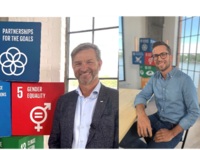
© Johan Lilja / Björn Möller (ICLD)
|
|
In-Profile – Björn Möller and Johan Lilja, Swedish International Centre for Local Democracy (ICLD)
Johan Lilja is the Secretary General of the Swedish International Centre for Local Democracy (ICLD). Johan has been working in the field of development and project management since 1988, and has a background in local government politics. He has a Bachelor’s degree in economics and science and a Master’s degree in business management related to sustainability and leadership.
Björn Möller is the Quality Assurance Manager at the ICLD Knowledge Centre and has been working within the field of local democracy and local governance for the past decade. His academic background is in public administration. He has a Master’s degree in public policy from the School of Public Administration in Gothenburg, Sweden.
In their joint interview, Johan and Björn provide an insight into ICLD’s programmes and activities and share their perspective on democratic trends around the world as well as COVID-19’s impact on democratic development globally. Besides reflecting on the challenges the pandemic poses to local, regional and national governments, they carve out the opportunities development organizations and networks like DeLoG should take advantage of in these challenging times.
|
| |
|
|
| |
|
|
|
|
|
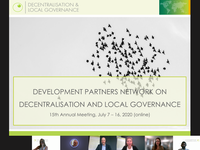
© DeLoG
|
|
DeLoG Annual Meeting 2020
DeLoG's 15th and first virtual Annual Meeting was hosted by the DeLoG Secretariat from the 7th to the 16th of July. Originally scheduled for April 2020, the Annual Meeting was meant to be hosted by LOGIN ASIA in Colombo, Sri Lanka, but had to be postponed due to COVID-19. As an alternative to the face-to-face exchange the DeLoG Secretariat organised an online version of the Annual Meeting.
Overall DeLoG's first virtual Annual Meeting consisted of five online sessions. Following a kick-off meeting on the 7th of July during which the results of DeLoG's Annual Member and Partner Survey were presented, DeLoG's Members and Partners shared inspiring inputs and activity pitches related to "Localising the 2030 Agenda" and "Local Finance and Fiscal Decentralisation" on the 08th and 09th of July. These two virtual meetings were followed by two further thematic sessions one week later on "Urban and Territorial Governance" (15th of July) and "Decentralisation and Local Governancen in Fragile Contexts" (16th of July).
Based on the proposed activities and ideas exchanged during this Annual Meeting, the DeLoG Secretariat in cooperation with its Members and Partners will develop a new Annual Workplan for the Network for 2020/21.
|
| |
|
|
| |
|
|
|
|
|
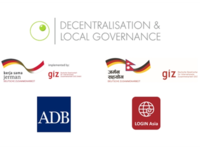
© DeLoG / ADB / LOGIN ASIA / GIZ
|
|
DeLoG Webinars with ADB, LOGIN ASIA and GIZ on "How the Covid-19 Crisis Challenges Resilience and Functionality of Multi-level Governance Systems in Asia"
The outbreak of the COVID-19 crisis has significant (and still escalating) impacts on social and economic development in Asia. In this context, the Secretariat of the Development Partners Network on Decentralisation and Local Governance (DeLoG), ADB, the Local Governance Initiative and Network (LOGIN) Asia and GIZ (German Development Cooperation), represented by the Capacity Development Support to Governance Programme (Nepal) and the Transformation of Administration (TRANSFORMASI) Programme (Indonesia), will jointly conduct two webinars on the 02 and 10 of September 2020, from 02:00 pm to 03:30 pm CEST.
The first webinar (2 September) on “Policies and Strategies Post Covid-19: How to strengthen Multi-level Systems in Asia” looked at policy and strategy challenges for Asia’s multi-level systems and explored how the political, fiscal and administrative features of multi-level systems can be improved to cope with the medium-term impact of COVID-19. The implications of the pandemic for realising the 2030 Agenda in the region and for efforts to localise the SDGs were considered as well.
The second webinar (10 September) on “Coping with the Crisis: Multi-level Systems in Action” discussed practical experiences of different countries in the region in responding to the COVID-19 situation, looking in more detail at the respective roles and mandates of each level of government and the effectiveness of existing mechanisms and processes of coordination and communication between levels of government.
You can find the recording and presentation of the first webinar here. The recording of the second webinar will be made available via the DeLoG Homepage shortly.
|
| |
|
|
| |
|
|
|
|
|
News from our Members and Partners
|
|
|
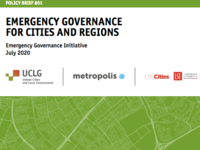
© UCLG / Metropolis / LSE Cities
|
|
UCLG, Metropolis and LSE Cities Launch the Emergency Governance Initiative
The COVID-19 pandemic has made it clear that suitable frameworks and action plans for governing “in emergency mode” are crucially needed, not only to respond to immediate health crises, but also to prepare for long-term emergencies such as climate change or the global housing crisis. The Emergency Governance Initiative for Cities and Regions (EGI) was jointly launched by UCLG, LSE Cities and Metropolis to build and disseminate knowledge on building resilience as well as on adapting and responding to complex emergencies. Against this backdrop the EGI regularly publishes Analytics Notes with the objective to collect and analyse governance information, as well as quarterly policy briefs, focused on providing propositional commentary on reform agendas and governance innovations. The initiative is part of a set of programmes launched by UCLG, Metropolis, LSE Cities and other organisations that include the Cities4GlobalHealth platform and the #BeyondtheOutbreak Live Learning Experiences.
|
| |
|
|
| |
|
|
|
|
|
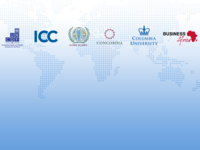
© UNCDF
|
|
UNCDF Launches Survey on the Socio-Economic Impact of COVID-19 on SMEs in LDCs
The economic impact of the COVID-19 pandemic has been – and will be – profound, especially on small and medium-sized enterprises (SMEs) in the world’s least developed countries (LDCs). However, a lack of accurate and precise information about the challenges faced by SME’s in LDCs is impeding the design of appropriate and effective responses. Therefore, the United Nations Capital Development Fund (UNCDF) and its partners have launched a survey to gather information directly from SME business leaders on how they are operating and adapting during the COVID-19 crisis. A selected number of respondents will be chosen to participate as presenters for promotional events conducted during the summer and fall of 2020. Development partners are encouraged to disseminate the survey widely to gather as much meaningful information as possible and understand how to support SMEs in LDCs during and after the pandemic.
|
| |
|
|
| |
|
|
|
|
|

© UN-Habitat
|
|
UN-Habitat Launches Innovative New Platform to Track Cities’ Readiness and Re-sponse to COVID-19
Accurate data has often been cited as one of the key ingredients for designing strategies to respond effectively to COVID-19 in cities. How are cities prepared and what approaches have worked so far? To answer these questions, UN-Habitat has developed a new platform that uses global metrics to provide often unavailable information from cities around the world. “It is critical for leaders to be able to identify where their resources can do the greatest good and where the needs are most urgent. We offer this tracker as one of many evidence-based tools that can help local decision-making processes” says Executive Director of UN-Habitat, Mamunah Mohd Sharif. The web-based platform provides scoring for over 1,000 cities, based on five core indicator areas: public health capacity, societal strength, economic ability, infrastructure, and national collaborative will.
|
| |
|
|
| |
|
|
|
|
|
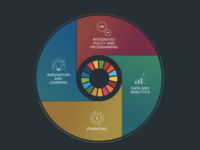
© UNDP
|
|
UNDP Launches Campaign on Integrated SDG Solutions
Development problems are interconnected – across sectors and scales. The climate crisis has clearly demonstrated that we need to address and deal with complex challenges in an integrated manner. Against this backdrop the United Nations Development Programme (UNDP) has launched a campaign on SDG integration to push past old development frontiers and to harness creative solutions with help from national and sub-national governments, communities, civil society, academia and the private sector. Besides offering direct support, the initiative provides a platform to showcase integrated solutions and success stories through the platform’s knowledge bank.
|
| |
|
|
| |
|
|
|
|
|
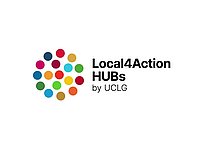
© UCLG
|
|
Launch of UCLG Local4ActionHubs by CIB Working Group
Though local governments are at the forefront of implementing the Agenda 2030, many successful programmes remain stuck at the local level. To draw attention to best-practices and to reflect on how to upscale these activities, UCLG has launched the Local4Action Hubs. The Local4Action Hubs provide a platform for showcasing, recognising and scaling-up local policies and processes and for fostering synchronisation between activities and parts of the broad network.
|
| |
|
|
| |
|
|
|
|
|
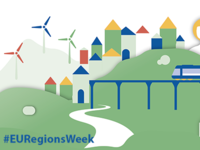
© European Commission / European Committee of the Regions
|
|
EU Green City Accord Expected to be Launched in October 2020
Cities are responsible for 80% of global greenhouse gas emissions and an equal share of energy production worldwide. Their consideration is critical for meeting the EU’s environmental objective to deliver the European Green Deal and to implement the UN Sustainable Development Goals (SDGs). The Green City Accord is a movement initiated by European mayors committed to safeguarding the natural environment, making cities cleaner, healthier and more resource efficient. Signatory cities will be supported in terms of reaching effective local resource management through technical support, peer-learning and capacity-building activities. By joining the Accord cities will improve visibility for their cities’ environmental efforts and gain access to a direct line of communication to European policy-makers. The Accord is expected to be launched – and opened for mayors’ signatures – in October 2020, during the European Week of Regions and Cities.
|
| |
|
|
| |
|
|
|
|
|
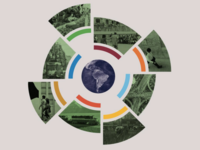
© UCLG
|
|
Latest Edition and Regional Publications of UCLG’s GOLD V Report Now Available Online in Different Languages!
The fifth Report of the Global Observatory on Local Democracy and Decentralization (GOLD V) on the Localization of the Global Agendas was officially launched in November 2019 in Durban at UCLG’s World Congress. The latest edition is now available online in English, French and Spanish. As a result of a three-year participatory process, the report provides an in-depth analysis of the degree of implementation of global agendas at local and regional levels and carves out the importance of decentralisation and multilevel governance for the localisation process.
|
| |
|
|
| |
|
|
|
|
|
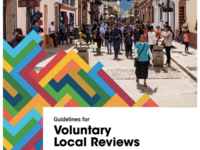
© UCLG / UN-Habitat
|
|
UCLG and UN-Habitat Launch First Volume of Guidelines for Voluntary Local Reviews
Throughout the 2020 High-Level Political Forum (HLPF), local governments and bottom-up action were referenced as main elements for achieving the Sustainable Development Goals (SDGs) and an inclusive and sustainable recovery from the COVID-19 pandemic. UCLG has been at the forefront of supporting local governments and has been advocating for their inclusion in international political processes. To ensure that successful local actions are recognised, monitored and potentially upscaled, UCLG together with UN-Habitat is working on facilitating and mainstreaming subnational reporting, in particular through Voluntary Local Reviews (VLRs). At the HLPF, they launched the first volume of their new guidelines for VLRs which highlights how VLRs can contribute to the transformation and strengthening of multi-level governance.
|
| |
|
|
| |
|
|
|
|
|
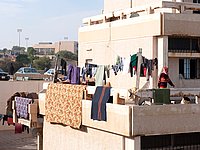
© EU Civil Protection and Humanitarian Aid via Flickr, CC BY-ND 2.0
|
|
IIED, UN-Habitat and the Joint Profiling Service (JIPS) Call for Cities to Develop a Proactive Response to Urban Displacement
It is estimated that 33.4 million people were internally displaced during 2019. The majority of these people relocated to urban areas. Unable to register with government or health authorities and dependent on informal networks, these individuals are vulnerable to multiple hazards, including COVID-19. In response to this development and the negative impact on both displaced persons and host communities, UN Secretary-General Antonio Guterres launched the High-Level Panel on Internal Displacement last year. In this joint submission, the International Institute for Environment and Development (IIED), UN-Habitat and the Joint IDP Profiling Service (JIPS) recommend concrete steps as well as a fundamental re-evaluation of how urban displacement should be addressed.
|
| |
|
|
| |
|
|
|
|
|
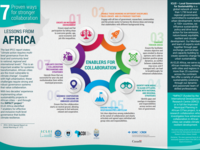
© ICLEI
|
|
Seven Proven Ways City Leaders Can Work Together to Create Resilient Cities
Cities are complex systems. Multi-level governance and collaboration across sectors is crucial to enable the efficient management and distribution of resources and services. Only by understanding and leveraging the potentials and challenges that exist within urban environments city leaders are able to create economic, social and ecologically sustainable cities that respond to the needs of their communities and that are resilient against external shocks. To guide this process ICLEI’s IMPACT project has summarised its findings to offer cities seven proven ways to ensure successful collaboration.
|
| |
|
|
| |
|
|
|
|
|

© Nattanan23 via Pixabay
|
|
Launch of UNCDF Blog on Local Finance
Local governments continue to operate without adequate financial funding. COVID-19 has contributed to exposing the paradox between the tasks and services local governments are expected to provide, and the budgetary shortages that prevent them from fulfilling these expectations. Therefore, the UN Capital Development Fund (UNCDF) has launched a blog to shed light on the role of local government finance in international development and the realisation of the Agenda 2030 and the Paris Agreement. Addressed at local government representatives, politicians, government officials, international development professionals and other interested individuals, the blog provides access to numerous meaningful resources that support the assertion that local government finance is development finance.
To subscribe to the blog, please contact David Jackson (UNCDF): david.jackson@uncdf.org
|
| |
|
|
| |
|
|
|
|
|

© LOGIN Asia
|
|
LOGIN Webinar Report: Response of Local Governments to COVID-19: The Kerala Experience
Local governments and institutions have been at the frontline of responding to the needs of communities and safeguarding service provision in times of crisis amidst the COVID-19 pandemic. In India, the experience of Kerala (a state in the southernmost part of the country) has gained much attention for local institutions’ rapid and agile response, underlining the importance of investing in local governments and context-sensitive decentralisation reforms once more. LOGIN Asia held a webinar on the 26th of June to reflect upon the experience of Kerala and to identify possibilities to upscale the state’s success. This report summarises the important lessons learned, advocating for more confidence in the strength and resilience of local communities that are enabled by well-equipped local governments.
|
| |
|
|
| |
|
|
|
|
|
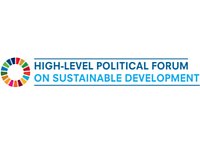
© UCLG
|
|
High-Level Political Forum 2020
Held virtually for the first time this year from the 7th to the 16th of July due to COVID-19, this year’s HLPF focussed on the experiences of its 197 member states concerning SDG implementation as well as gaps and lessons learned.
In over eight separate sessions and in particular at the Third Local & Regional Governments Day & Forum (LRG Day) the crucial role of local governments and the need to include them in SDG implementation and review processes was addressed. Based on the demand to increase investments in the area of universal access to essential public services, the stakeholders involved in the organisation of the LRG Day presented a joint statement to the HLPF to further define priorities for the recovery from COVID-19. In addition, UCLG and UN-Habitat used the opportunity to jointly present their new Voluntary Local Review Series (VLR), including a first volume of Guidelines for VLRs.
|
| |
|
|
| |
|
|
|
|
|
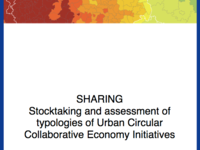
© ESPON
|
|
Urban Agenda for the EU: Final Reports on Urban Circular Collaborative Initiatives
Cities and regions face numerous challenges linked to sustainability including climate change, economic growth and social exclusion. Circular economy can help to respond to these challenges by reducing and managing the use of resources effectively, contributing to business innovation and reducing emissions. Aimed at creating a common understanding of the Urban and Circular Collaborative Economy across European territories, this ESPON Targeted Analysis provides policy makers with evidence of the impacts of Urban Circular Collaborative Economy initiatives focusing on six different territories. In doing so, the report goes beyond large collaborative economy platforms (e.g. Uber, Airbnb) to draw attention to the success of smaller local initiatives.
|
| |
|
|
| |
|
|
|
|
|
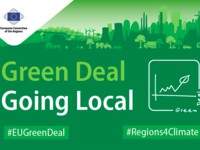
© European Committee of the Regions
|
|
The European Green Deal is Going Local
The European Union is committed to the transition towards a clean, sustainable and carbon-neutral economy. To make sure that the European Green Deal is implemented at the local level, and that cities and regions have the financial and human capacities to ensure an efficient and sustainable implementation of concrete projects, the European Committee of the Regions (CoR) has launched the ‘Green Deal Going Local’ working group composed of 13 local and regional and elected representatives. Founded in June, the working group will meet on a regular basis, prepare recommendations to relevant commissions and contribute to the CoR plenary sessions with the overall goal to place cities and regions at the heart of policies promoting carbon-neutrality.
|
| |
|
|
| |
|
|
|
|
|
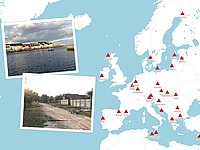
© POLITICO
|
|
Coronavirus: Local Leaders in a Global Crisis
Nobody anticipated the extent to which people’s lives would be affected by the COVID-19 pandemic when everything started. Decision-makers had to design solutions from scratch while budgets were slowly drying up, impacted by the slowdown of economic activities and increasing costs for social and health services that had long been neglected. To get a sense of how the crisis has affected places and local communities beyond national capitals, POLITICO has spoken to 28 mayors and local leaders from across Europe. Their reflections underline the desire to set a new direction for Europe’s social and economic future that puts the stability and resilience of local communities at the heart of policy-making.
|
| |
|
|
| |
|
|
|
|
|
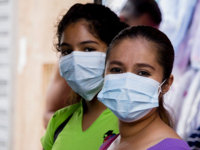
© Modovisible via Pixabay
|
|
ESPON : Collecting Experiences and Evidence on Local and Regional Responses to COVID-19
The COVID-19 pandemic will have both sanitary and territorial impacts, but regions and cities won’t be hit with the same intensity. Depending on the local capacities of health-care systems, the resilience of local public services and existing local initiatives, impacts will be felt more or less severely. This is why the European Observation Network for Territorial Development and Cohesion (ESPON) has launched a call to gather local experiences and territorial policy responses to be shared with all European regions. The goal is to monitor the territorial impact of the crisis in order to be able to design better responses in future. To respond to the call, please send a short description of your best practices to nikos.lampropoulos@espon.eu
|
| |
|
|
| |
|
|
|
|
|
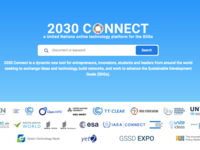
© UN DESA / UN OICT
|
|
UN Launches 2030 Connect to Exchange Ideas on SDG Implementation
Launched by the United Nations the online platform “2030 Connect” promotes science, technology and innovation for sustainable development by mapping existing initiatives and ideas. “2030 Connect” has been designed as a “one-stop-shop” for policy makers, practitioners, students, members of civil society and other stakeholders that seek to tap into the expertise and networks of the United Nations system and its partners. In addition to offering a cross-platform search function, “2030 Connect” provides timely feature stories with links to science and technology resources— for example on small-scale entrepreneurs who have recently won an UN-sponsored innovation competition for a compendium of technologies to combat the COVID-19 pandemic.
|
| |
|
|
| |
|
|
|
|
|
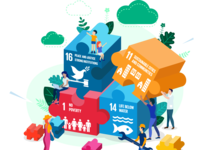
© SEI
|
|
SEI Launches SDG Synergies
To achieve the Sustainable Development Goals (SDGs) a profound understanding of the interlinkages between different policy areas is required as ultimately all goals are interrelated in their ambition to achieve sustainable peace and prosperity for all. To counter silo-thinking and disciplinary divides, the Stockholm Environment Institute (SEI) has developed “SDG Synergies”, a practical tool for comprehending and visualising the interactions between different targets based on systems thinking. Designed by researchers at the Stockholm Environment Institute, SDG synergies can support national and sub-national governments to implement the SDGs in an integrated manner.
|
| |
|
|
| |
|
|
|
|
|
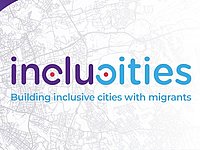
© IncluCities
|
|
CEMR Launches IncluCities to Facilitate City-to-City Collaboration for Better Migration Policies
Migration is a subject that almost every city is confronted with nowadays. Small and medium-sized cities are often unexperienced in managing the integration and inclusion of third country-nationals or guiding initiatives to ensure social cohesion and togetherness. To enable knowledge sharing between local governments with varying experience in this field, the Council of European Municipalities and Regions (CEMR) has launched “IncluCities”. Funded by the Asylum Migration and Integration Fund (AMIF) of the European Union (EU), the project offers support for less experienced cities based on four mentoring schemes, including education and training, access to basic services, active participation and social inclusion as well as housing.
|
| |
|
|
| |
|
|
|
|
|

© CBA14
|
|
CBA14: 14th International Conference on Community-based Adaption to Climate Change
When: 21 – 25 September 2020
Where: Online
Apply by: Registration open
The importance of localising development solutions and enabling participation from all sides has been widely recognised. Yet, most high-level conferences continue giving voice to those stakeholders that already have a stage, excluding the people whose lives are most affected by global risks such as climate change. CBA14 is one of the few conferences that focusses on community-based adaptation, putting the people most vulnerable to climate change at the centre of conversation. Hosted by CARE, the Climate Justice Resilience Fund, the Global Resilience Partnership, Irish Aid, Practical Action and IIED, the event will take place online over a period of five days with an innovative programme focusing on the following key themes: Climate finance, adaptation technology, responsive policy, nature-based solutions and youth inclusion.
|
| |
|
|
| |
|
|
|
|
|
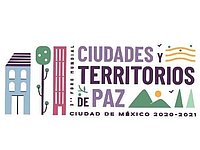
© Ciudades y Territorios de Paz
|
|
Postponed: 3rd World Forum on Cities and Territories of Peace
When: 5 – 7 October 2020 (tbc)
Where: Online
Apply by: Stay tuned for registration
Due to the COVID-19 outbreak the World Forum on Cities and Territories of Peace, initially scheduled for October 2020 in Mexico City, has been postponed to 2021. A virtual event, however, is being planned for 5 – 7 October 2020 to discuss peacebuilding in urban areas (tbc). Aimed at fostering solutions to eliminate expressions of violence and facilitating peaceful coexistence in cities, this edition builds upon the II World Forum on Urban Violence and Education to advance an agenda of cities of peace in line with the New Urban Agenda.
|
| |
|
|
| |
|
|
|
|
|
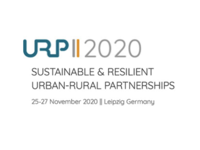
© URP 2020
|
|
Sustainable and Resilient Urban-Rural Partnerships (URP2020)
When: 25 – 27 November 2020
Where: Online
Apply by: Registration open
Regions are crucial for implementing the 2030 Agenda, the Habitat III objectives and the European Green Deal. This conference focuses in particular on urban-rural partnerships to develop integrated strategies and explore future potentials for enabling sustainability and resilience. Under the auspices of the Minister of the German Ministry for Education and Research (BMBF) Anja Karliczek, the URP2020 will bring together outstanding keynote speakers to connect theoretical and scientific research with the experience of practitioners. The event will take place in a hybrid format, i.e. physical meetings in Leipzig which will be open for digital participation as well as digital-only-sessions.
|
| |
|
|
| |
|
|
|
|
|
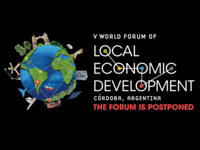
© LED World Forum
|
|
Postponed: 5th World Forum of Local Economic Development
When: TBC
Where: Córdoba, Argentina
Apply by: Stay tuned for registration
In light of the concerns surrounding the COVID-19 pandemic, the 5th World Forum of Local Economic Development has been postponed. New dates are being explored and will be announced as soon as the situation allows. The Forum is part of an open working process, which promotes international dialogue and experience sharing concerning Local Economic Development (LED). Initiated in 2011 in Seville Spain, the process integrates regional forums, side events and training activities, culminating every two years with a world event.
|
| |
|
|
| |
|
|
|
|
|
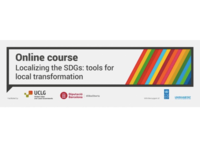
© UCLG / Diputació Barcelona
|
|
Localizing the Sustainable Development Goals: Tools for Local Transformation
When: 17 September – 22 December 2020
Where: Online
Apply by: 6 September 2020
Organised by: UCLG / Barcelona Provincial Council
|
| |
|
|
| |
|
|
|
|
|
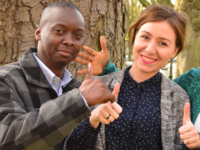
© The Hague Academy
|
|
Citizen Participation and Inclusive Governance (Blended Training)
When: 21 September –16 November 2020
Where: The Hague, Netherlands / Online
Apply by: 4 September 2020
Organised by: The Hague Academy for Local Governace
|
| |
|
|
| |
|
|
|
|
|
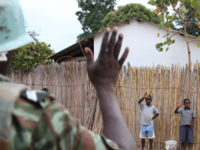
© The Hague Academy
|
|
Conflict, Rule of Law and Local Security (Blended Training)
When: 21 September –16 November 2020
Where: The Hague, Netherlands / Online
Apply by: 4 September 2020
Organised by: The Hague Academy for Local Governace
|
| |
|
|
| |
|
|
|
|
|
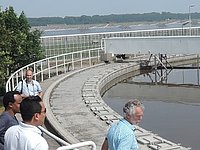
© The Hague Academy
|
|
Multilevel Water Governance (Blended Training)
When: 28 September –23 November 2020
Where: The Hague, Netherlands / Online
Apply by: 11 September 2020
Organised by: The Hague Academy for Local Governace
|
| |
|
|
| |
|
|
|
|
|
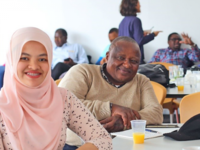
© The Hague Academy
|
|
Gender Responsive Governance (Blended Training)
When: 28 September –23 November 2020
Where: The Hague, Netherlands / Online
Apply by: 11 September 2020
Organised by: The Hague Academy for Local Governace
|
| |
|
|
| |
|
|
|
|
|
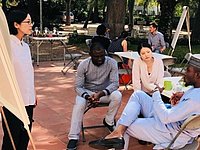
© The Hague Academy
|
|
Sustaining Peace and Local Governance (in French)
When: 7 – 11 December 2020
Where: The Hague, Netherlands
Apply by: 30 October 2020
Organised by: The Hague Academy for Local Governace
|
| |
|
|
| |
|
|
|
|
|
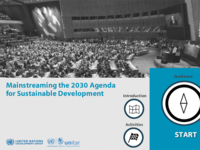
© UNITAR
|
|
Mainstreaming the 2030 Agenda for Sustainable Development
When: Self-paced
Where: Online
Apply by: Registration open
Organised by: UNITAR
|
| |
|
|
| |
|
|
|
|
|
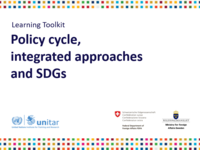
© UNITAR
|
|
Policy Cycle, Integrated Approaches and SDGs
When: Self-paced
Where: Online
Apply by: Registration open
Organised by: UNITAR
|
| |
|
|
| |
|
|
|
|
|
Knowledge
|
|
|
Decentralisation and Local Governance in Contexts of Fragility, Post-Conflict and Migration
|
|
|
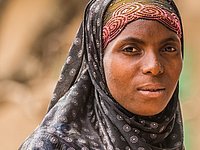
© Vincent Tremeau / World Bank
|
|
Gender Inequality Exacerbates the COVID-19 Crisis in Fragile and Conflict-Affected Settings
No crisis has ever been gender-neutral and the same holds true for the COVID-19 pandemic. COVID-19 has unveiled and exacerbated gender inequalities. Not only are 70% of health workers women, and are therefore disproportionately exposed to infection risks, many have also experienced an increase in gender-based violence (GBV) as a result of lockdown measures all over the world. Caren Grown and Franck Bousquet carve out the gendered effects of the crisis, especially in contexts of fragility, conflict and violence (FCV) in this World Bank Blog post. Their account underlines the importance of gender equality for building resilient and peaceful societies.
Authors: Caren Grown, Franck Bousquet
Publisher: World Bank Blog
Publication Date: 2020
Copyright: World Bank Blog
|
| |
|
|
| |
|
|
|
|
|
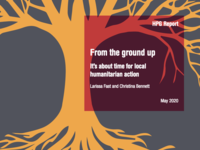
© ODI
|
|
From the Ground Up – It’s about Time for Local Humanitarian Action
The localisation of responses to humanitarian crises has been an explicit ambition for several decades. Both the UN Secretary General’s report for the 2016 World Humanitarian Summit (WHS) and the resulting Grand Bargain reform agenda called for responses that are “as local as possible, as international as necessary.” However, despite increasing awareness for this issue, protection responses often remain highly centralised and unsuccessful in building strategic partnerships with local actors. To understand why localisation in the humanitarian sector has largely failed, the Humanitarian Policy Group (HPG) has conducted a three-year research programme entitled “From the ground up: understanding local response in crises.” The resulting report underlines that international aid constitutes only one source of assistance and that localisation depends on humanitarian actors recognising its importance and partnering with informal actors and social networks who are involved in protecting those in need.
Authors: Larissa Fast, Christina Bennet
Publisher: ODI
Publication Date: May 2020
Copyright: ODI
|
| |
|
|
| |
|
|
|
|
|
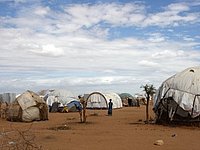
© Pete Lewis via Flickr, CC BY 2.0
|
|
Bringing Urban Refugees into Local Planning
Although 60% of refugees live in towns and cities, displacement continues to be portrayed through images of camps located in remote areas. The lack of attention to the diverse challenges that refugees and internally displaced people (IDPs) face in urban areas, such as stigmatisation by public officials or lack of access to housing and basic services, impedes upon the design of holistic responses. Rather than providing humanitarian support only, municipalities should acknowledge the potential that displaced people bring to cities and integrate them into local planning and governance frameworks.
The International Institute for Environment and Development (IIED) supports multiple initiatives in this area, amongst others a study that compares the experiences of refugees and internally displaced persons (IDPs) in cities and camps from four countries – Afghanistan, Ethiopia, Jordan and Kenya.
Authors: Lucy Earle
Publisher: IIED
Publication Date: 2020
Copyright: IIED
|
| |
|
|
| |
|
|
|
|
|
Local Finance and Fiscal Decentralisation
|
|
|

© lukascaraffini2012 via Pixabay
|
|
Deliberating for Sustainability: Lessons from the Porto Alegre Experiment with Participatory Budgeting
Participatory budgeting (PB) has been widely celebrated as a transformative practice for fostering local democracy and economic sustainability. In this paper Martin Calisto Friant analyses the experiences made in Porto Alegre with PB through an interdisciplinary lens, combining theories of the right to the city, environmental justice and deliberative democracy. Arguing that the deliberative nature of participatory processes has had a particularly positive impact on urban environments, Calisto proposes a number of key recommendations to replicate and upscale this mechanism to work towards social and environmental sustainability in cities.
Author: Martin Calisto Friant
Publisher: International Journal of Urban Sustainable Development
Publication Date: 2020
Copyright: International Journal of Urban Sustainable Development
|
| |
|
|
| |
|
|
|
|
|
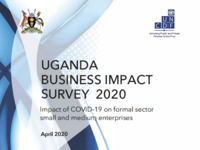
© UNCDF / Makere University
|
|
Uganda Business Impact Survey 2020
The measures taken by governments all over the world to contain the COVID-19 pandemic have affected many companies, particularly small and medium enterprises. As part of a broader socio-economic assessment of these consequences by the United Nations in Uganda, the UN Capital Development Fund (UNCDF) in cooperation with Makere University and the support of the Uganda Revenue Authority (URA) has conducted a business survey to assess the impact of COVID-19 on business’ operations and to provide feedback for the development of policies and business relief and recovery packages. The study demonstrates that while companies were quick in adjusting their business models and adopting innovative technological solutions, neither the rate nor the scope of innovation was sufficient to adequately address the challenges posed by COVID-19. Therefore, the study recommends that solutions should both include relief and stimulus packages and that businesses should use this opportunity to design long-term programmes that create business environments that encourage sustainability and resilience to future shocks.
Author: Dr. Dmitry Pozhidaev
Publisher: UNCDF/ Makere University
Publication Date: 2020
Copyright: UNCDF/ Makere University
|
| |
|
|
| |
|
|
|
|
|

© Mohamed Hassan via Pixabay
|
|
COVID-19 and Fragility: The Threat Posed by Corruption, Crooks, and the Resulting Illicit Financial Flows
How can governmental responses to COVID-19 be effective in protecting the most vulnerable and enable an inclusive recovery, if a high amount of these urgently needed funds are lost to corruption and become illicit financial flows (IFFs)? This critical question is posed by Jana Warkotsch and Carola Frank in their recent publication featured by the Working Group on Peace and Development (FriEnt). The lack of financial transparency and oversight does not only lead to a loss of funds - an estimate of 10-25 cents of every dollar spent on procurement are lost to corruption - but also damages the relationship between citizens and states. To counter these tendencies, the authors suggest strengthening a) both governments’ and donors’ commitment to transparency and accountability as well as b) local actors’ role to monitor and control how funds are spent.
Author: Jana Warkotsch, Carola Frank
Publisher: FriEnt
Publication Date: 2020
Copyright: FriEnt
|
| |
|
|
| |
|
|
|
|
|
Localising the 2030 Agenda
|
|
|
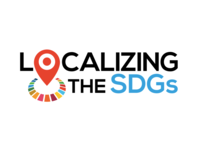
© Local2030
|
|
Policy Support, Effectiveness and Legitimacy in the Localisation of the Sustainable Development Goals
The Sustainable Development Goals (SDGs) aspire to have a transformational impact on how national and sub-national development strategies are set. However, as a global governance framework without legally binding commitment and formal enforcement initiatives, it relies on the acknowledgement of its legitimacy through a broad international consensus. This study commissioned by the UN Development Programme (UNDP) and the Generalitat de Catalunya analyses the challenges this poses to ensure commitment toward the implementation of Agenda 2030 at the local level. Written by F.J. Granados and A. Nogerini, it proposes three key elements of policy-making to enhance the legitimate and efficient support of the SDGs: 1. Fostering institutional coordination between different policy domains and levels of government, 2. Enabling stakeholder participation in the negotiation of policy preferences, and 3. Creating monitoring systems to keep political authorities accountable. The study concludes that as experts of the needs and characteristics of their territories, local and regional governments’ role is essential for establishing these structures along the policy cycle to strengthen the effectiveness and legitimacy of localised policy responses.
Authors: F.J. Granados, A. Noferini
Publisher: Generalitat of Catalonia / UNDP
Publication Date: 2020
Copyright: Generalitat of Catalonia / UNDP
|
| |
|
|
| |
|
|
|
|
|
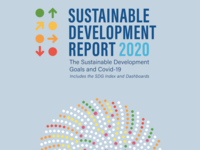
© UNSDSN
|
|
Sustainable Development Report 2020: The Sustainable Development Goals and COVID-19
This year is not like any other. The COVID-19 pandemic continues to cost lives, with around 463,000 people dead as of June 20th, 2020. The realisation of most Sustainable Development Goals (SDGs) has shifted to the distant future. This year’s Sustainable Development Report reflects upon the challenges, but also the opportunities created by the pandemic, which has laid bare the vulnerability of our health systems and the massive inequalities that have existed and accelerated over the past decades. With the key objective being not only the restoration, but the reorientation of economic activity towards social and ecological sustainability, the SDGs will have to be at the heart of policymaking to enable a green and inclusive recovery from COVID-19.
Authors: J. Sachs, G. Schmidt-Traub, C. Kroll, G. Lafortune, G. Fuller, F. Woelm
Publisher: Cambridge University Press
Publication Date: 2020
Copyright: Cambridge University Press
|
| |
|
|
| |
|
|
|
|
|

© Viviane Okubo via Unsplash
|
|
How Can Voluntary Local Reviews Contribute to the SDG Decade of Action? An As-sessment of VLRs to Date
Voluntary Local Reviews (VLRs) have been found to be an important vehicle in safeguarding the localisation of the Sustainable Development Goals (SDGs). The Institute for Global Environmental Strategies (IGES) has published two complimentary reports to highlight the best-practices of local and regional governments in working towards the achievement of the 2030 Agenda and to inspire their replication. This article reviews key recommendations for strengthening the VLR process. It underlines the need to empower local governments in order to strengthen resilience, especially during and after COVID-19.
Authors: Hirotaka Koike, Fernando Ortiz-Moya, Junichi Fujino, Yatsuka Kataoka
Publisher: IGES
Publication Date: 2020
Copyright: IGES
|
| |
|
|
| |
|
|
|
|
|
Urban and Territorial Governance
|
|
|
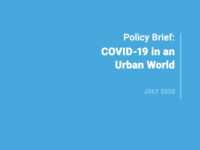
© United Nations
|
|
Policy Brief: COVID-19 in an Urban World
With an affliction rate of approximately 90%, urban areas have become the epicentre of the COVID-19 pandemic. It is not density per se that correlates with higher transmission rates but rather social and economic geographies of inequality, which have made the lack of inclusive access to health services, housing and sanitation services painfully clear. The United Nations (UN) have launched a call to rethink the way we build and organise cities, using the pandemic as a starting point for a green and socially just recovery. This policy brief outlines three recommendations that this process should be based on: 1. Tackling inequalities and development benefits, 2. Strengthening capacities of local actors and governments and 3. Enabling a resilient, inclusive, gender-equal and green economic recovery.
Publisher: United Nations
Publication Date: 2020
Copyright: United Nations
|
| |
|
|
| |
|
|
|
|
|
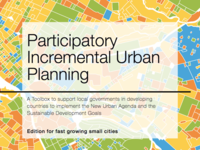
© UN-Habitat
|
|
Participatory Incremental Urban Planning: A Toolbox to Support Local Governments in Developing Countries to Implement the New Urban Agenda and the Sustainable Development Goals
The Participatory Incremental Urban Planning (PIUP) Toolbox by UN-Habitat provides a step-by step methodology to assess, design, operationalise and implement urban planning processes. Designed to fit the needs and local characteristics of various urban contexts, it serves as a roadmap for city leaders, urban planners, civil society and private actors to understand, visualise and strategise complex urban planning processes with a clear instruction of which key deliverables (urban analyses, scenarios, concept plan, action plan, detailed plans, feasibility studies, etc.) to include and how to design them.
Authors: Laure Garel, Thomaz Ramalho
Publisher: UN-Habitat
Publication Date: 2020
Copyright: UN-Habitat
|
| |
|
|
| |
|
|
|
|
|
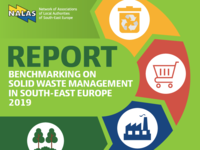
© NALAS
|
|
2019 Benchmarking Report on Solid Waste Management in SEE
South-East Europe is on track to promote the Circular Economy and to implement reliable practices of waste data collection and reporting as a basis for better policymaking. The Benchmarking Report on Waste Management in South-East Europe prepared as a joint effort by the members of the Network of Associations of Local Authorities of South-East Europe (NALAS) Task Force on Solid Waste and Water Management from eleven Local Government Associations (LGAs) underlines a positive trend in the waste management sector, especially in EU member countries. Based on data from ten different countries in the region, the report gives an insight in what has been achieved in the past years and provides best practices for context-specific strategies to upgrade waste management systems.
Authors: NALAS Task Force on Solid Waste and Water Management
Publisher: NALAS
Publication Date: 2019
Copyright: NALAS
|
| |
|
|
| |
|
|
|
|
| |

|
|
|
| |
|
|
| |
For access to even more inspiring publications on Local governance and
Decentralisation in Contexts of Fragility, Post-Conflict and Migration, Local Finance and
Fiscal Decentralisation, Localising the 2030 Agenda, or Urban and Territorial Governance make sure to visit the
'Knowledge Section' of our DeLoG Website - Updates occur regulary!
|
|
|















































